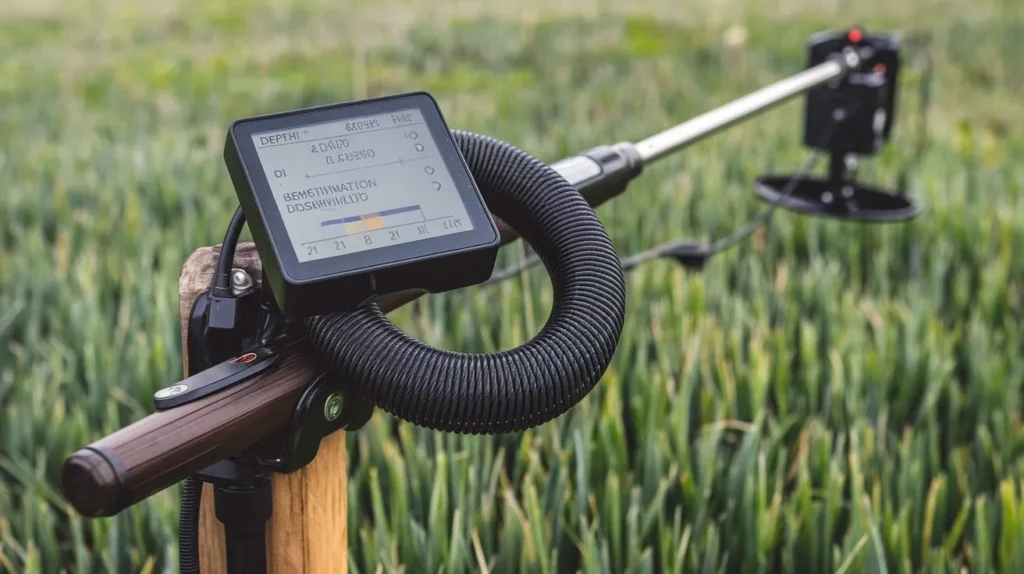Can a metal detector detect gold?
Have you ever dreamed of striking it rich by discovering hidden treasure? 🏴☠️💰 The allure of finding gold has captivated humans for centuries, and modern technology has given us a powerful tool in this quest: the metal detector. But can these devices really detect gold?
Many treasure hunters and prospectors swear by their metal detectors, but others remain skeptical. The truth is, not all metal detectors are created equal when it comes to gold detection. Some are specifically designed for this precious metal, while others may struggle to distinguish gold from other materials. Understanding the capabilities and limitations of metal detectors is crucial for anyone hoping to unearth that elusive golden nugget.
In this blog post, we’ll dive deep into the world of metal detecting and gold hunting. We’ll explore how metal detectors work, their gold detection capabilities, and how to choose the right equipment for your treasure-seeking adventures. So, grab your gear and let’s uncover the golden truth about metal detectors!
Understanding Metal Detectors
How metal detectors work
Metal detectors operate on the principle of electromagnetic induction. They generate a magnetic field that penetrates the ground and interacts with metallic objects. When a metal object is present, it creates a disturbance in this field, which is then detected and signaled by the device.
Factors affecting detection capability
Several factors influence a metal detector’s ability to find objects:
- Depth: The deeper an object is buried, the harder it is to detect.
- Size: Larger objects are generally easier to detect than smaller ones.
- Composition: Different metals have varying levels of conductivity, affecting detection ease.
- Soil conditions: Mineralized soil can interfere with detection accuracy.
- Detector sensitivity: Higher-end detectors often have better sensitivity and discrimination capabilities.
Types of metal detectors
There are several types of metal detectors, each suited for different purposes:
- Very Low Frequency (VLF) detectors: These are the most common and versatile, suitable for beginners and general-purpose use.
- Pulse Induction (PI) detectors: Ideal for highly mineralized areas and deep-seeking applications.
- Multi-Frequency (MF) detectors: Offer enhanced discrimination and depth capabilities.
- Beat-Frequency Oscillation (BFO) detectors: Simple and inexpensive, but less precise than other types.
Understanding these basics of metal detectors sets the foundation for exploring their gold detection capabilities. Next, we’ll delve into the specific aspects of detecting gold with these devices.
Gold Detection Capabilities
Distinguishing Gold from Other Metals
Metal detectors can indeed detect gold, but distinguishing it from other metals requires some expertise. Gold has a unique electromagnetic signature due to its high conductivity. Most modern metal detectors use VLF (Very Low Frequency) technology, which can differentiate between various metals based on their conductivity. Gold’s high conductivity allows it to be distinguished from less conductive metals like iron or aluminum.
Size of Gold Objects Detectable
The size of gold objects that a metal detector can find varies depending on the detector’s sensitivity and the environmental conditions. Generally, most metal detectors can detect gold nuggets as small as a grain of rice. However, for smaller particles like gold dust, specialized gold prospecting detectors are required. These detectors are designed with higher frequencies, making them more sensitive to tiny gold pieces.
Depth Limitations for Gold Detection
The depth at which a metal detector can detect gold depends on several factors, including the size of the gold object, the type of soil, and the detector’s power. On average, a good-quality metal detector can detect a gold coin-sized object up to 4-6 inches deep in mineralized soil. Larger gold objects can be detected at greater depths, sometimes up to 12-18 inches. However, for deeper targets, more powerful and specialized detectors are needed.
Conductivity of Gold
Gold’s high conductivity is what makes it detectable by metal detectors. It has a conductivity rating of 70% on the International Annealed Copper Standard (IACS), which is significantly higher than many other metals. This high conductivity allows gold to produce a strong signal when exposed to the electromagnetic field generated by a metal detector. However, it’s worth noting that other highly conductive metals like silver and copper can sometimes produce similar signals, which is why additional factors like object size and depth are important in identifying gold.
Now that we understand the gold detection capabilities of metal detectors, let’s explore how to choose the right metal detector specifically for gold hunting.
Choosing the Right Metal Detector for Gold
Now that we understand the capabilities of metal detectors in detecting gold, let’s explore how to choose the right metal detector for your gold-hunting adventures.
Discrimination capabilities
Metal detectors with advanced discrimination features allow you to filter out unwanted metals and focus on gold. Look for detectors that can distinguish between different types of metals, enabling you to ignore common items like nails or bottle caps while honing in on precious metals.
Price vs performance considerations
While high-end metal detectors often offer superior gold detection capabilities, they come with a hefty price tag. Consider your budget and frequency of use when selecting a detector. Mid-range models can provide excellent performance for occasional gold hunters, while serious prospectors may benefit from investing in more advanced equipment.
Ground balance features
Gold is often found in highly mineralized soil, which can interfere with detection. Opt for a metal detector with automatic or manually adjustable ground balance to minimize false signals and improve gold detection in challenging terrain.
Frequency and sensitivity settings
Higher frequency metal detectors are generally more sensitive to small gold nuggets. Look for detectors with adjustable frequency settings or multi-frequency capabilities. Additionally, sensitivity controls allow you to fine-tune your detector’s performance based on environmental conditions.
Specialized gold detectors
For dedicated gold prospecting, consider investing in a specialized gold detector. These models are designed specifically for gold detection, offering optimized features and settings that cater to the unique properties of gold.
With these factors in mind, you’ll be better equipped to choose a metal detector that suits your gold-hunting needs. Next, we’ll address the burning question: Can a metal detector actually detect gold?
Can a metal detector detect gold?
Yes, a metal detector can indeed detect gold. However, the effectiveness of gold detection depends on several factors. Gold is a highly conductive metal, which makes it detectable by most metal detectors. The success rate of finding gold with a metal detector relies on the type of detector used, the size and depth of the gold, and the surrounding soil conditions.
Modern metal detectors, especially those designed for gold prospecting, are highly sensitive and can detect even small gold nuggets or flakes. These specialized detectors often use higher frequencies, which are more effective for finding small gold pieces. However, it’s important to note that gold detection can be challenging due to the metal’s unique properties.
One of the main challenges in detecting gold is its low magnetic susceptibility compared to other metals like iron. This means that some metal detectors might struggle to differentiate gold from other metals or minerals in the ground. Additionally, the depth at which gold can be detected varies depending on the size of the gold piece and the power of the metal detector.
When searching for gold with a metal detector, it’s crucial to understand the limitations and capabilities of your specific device. Some advanced detectors come with specialized gold-detecting modes or adjustable frequencies to optimize gold detection. Proper technique and practice are also essential for successful gold hunting with a metal detector.
Conclusion
Gold detection is indeed possible with metal detectors, but it requires the right equipment and knowledge. While all metal detectors can potentially identify gold, specialized gold detectors offer superior performance in mineralized soils where gold is often found. These detectors typically operate at higher frequencies, making them more sensitive to small gold nuggets and flakes.
When searching for gold, it’s crucial to choose a metal detector designed for the task. Consider factors such as the detector’s frequency, ground balancing capabilities, and discrimination features. Remember that successful gold hunting also depends on understanding the geology of gold-bearing areas and honing your detecting skills through practice. With the right tools and techniques, metal detecting can be an exciting way to discover gold in various forms.





